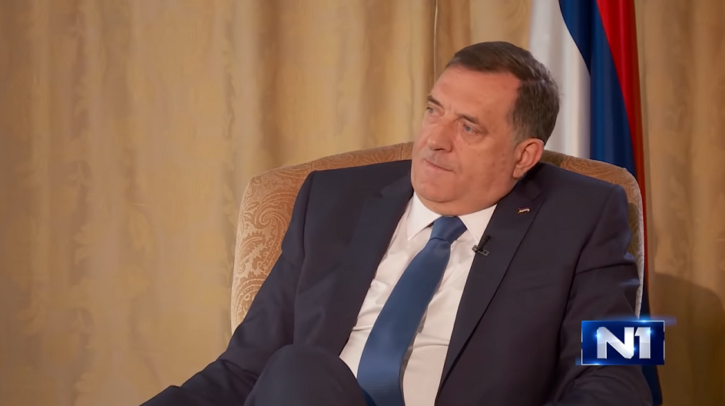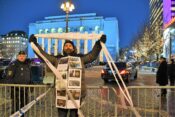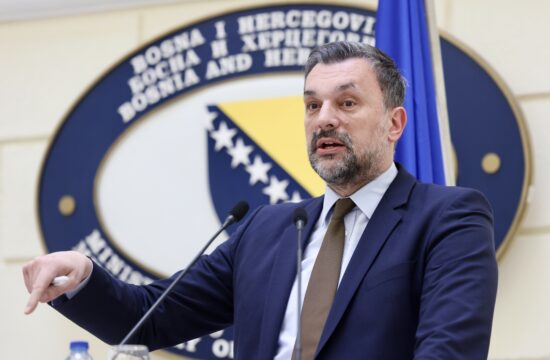
Peter Handke is a “fighter for truth and justice,” according to a congratulatory note the Serb member of Bosnia’s tripartite Presidency, Milorad Dodik, sent to the controversial writer who received the 2019 Nobel Prize for Literature on Tuesday.
“The Nobel Prize has ended up in the right hands, as we are talking about a writer whose entire body of work is of exceptional value and the result of his unparalleled talent, work and creativity,” Dodik’s note said.
As the Nobel Prize Committee was handing the award to Handke, several hundred people, mostly Bosnians, gathered in central Stockholm on Tuesday late afternoon for a protest.
Handke is known for his controversial stances on the 1992-95 Bosnian war.
Survivors and family members of those who were killed in the massacres in Bosnia between 1992 and 1995 protested in front of the Swedish Embassy in Sarajevo after the news that Handke would receive the Prize came out, calling him a genocide denier and an apologist for Bosnian Serb war crimes.
But according to Dodik, “Handke’s literary work is, as (writer and Nobel Prize recipient) Ivo Andric would say, not poisoned by hate, but guided by the broadness and the serenity of the free human spirit.”
The Bosnian Serb leader added that Handke is not only a writer but also a “big humanist and fighter for truth and justice.”
“I once again congratulate you for this significant award for your entire body of literary work, wishing that you continue to write for the pleasure of us, your numerous readers and admirers of your written word,” he wrote.
Serbia’s President Aleksandar Vucic also congratulated the Austrian writer.
“Serbia considers you a true friend,” Vucic wrote, adding, “we experience your Nobel Prize as if one of us received it.”
“Now, apart from Ivo Andric, we celebrate another of our Nobel recipients,” his note said.
He wrote that Handke was awarded not only for his “extraordinary literary work, knowledge and creativity,” but also for his “extraordinary moral characteristics, courage and honour,” with which he fights for his “ideals of a top intellectual.”






